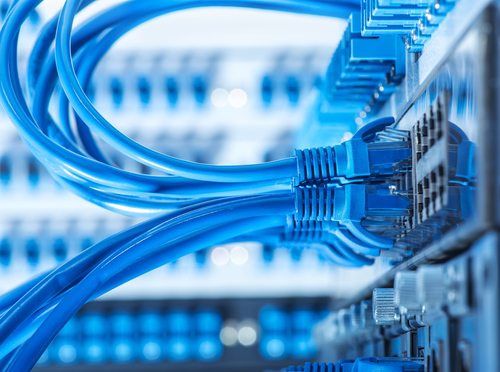A cyber attack has knocked Liberia’s internet offline, as hackers targeted the nation’s infrastructure using the same method that shut down hundreds of the world’s most popular websites at the end of last month. Multiple attacks against Liberia’s internet infrastructure have intermittently taken the country’s websites offline over the course of a week. IT security experts from NSFOCUS and ESET commented below.
Stephen Gates, Chief Research Intelligence Analyst at NSFOCUS:
 “Researchers and analysts (like myself) have been warning organisations all over the world that this day would come, and now it’s here. Since the attacks on Spamhaus in early 2013 that exceeded 300Gbps, taking a country offline in a DDoS attack became more of a reality. Doing the math, a 1Tbps DDoS attack can fill 100 – 10Gbps pipes. Many smaller countries don’t have that much bandwidth serving their entire country.
“Researchers and analysts (like myself) have been warning organisations all over the world that this day would come, and now it’s here. Since the attacks on Spamhaus in early 2013 that exceeded 300Gbps, taking a country offline in a DDoS attack became more of a reality. Doing the math, a 1Tbps DDoS attack can fill 100 – 10Gbps pipes. Many smaller countries don’t have that much bandwidth serving their entire country.
Sabotaging parts of the “Internet” in the U.S. on election day is quite possible. However, polling machines in the U.S. are not directly connected to the Internet. Unfortunately, it’s still unclear if voter “identification systems” are. In some states, the voter ID must be checked before a voter can proceed. If those systems are connected to the Internet to gain access to a database of registered voters, and they were taken offline, then would-be voters could not be verified. What that would mean to the election process is anyone’s guess.”
Mark James, Security Specialist at ESET:
 “DDoS attacks are certainly becoming more and more popular especially since the means to instigate them are easy to come by. With so many more of our events being bolstered or even completely run online it does pose a very real problem. We want things available at ease; we often rely very heavily on the internet to help us in our daily activity. With so many things done in real time on our handheld devices the disruption caused by intermittent or failed internet could have serious effects if ongoing. Often DDoS is seen as a voice, a means to express your displeasure or concern over something you feel strongly about but let’s not forget that DDoS may also be used as a smoke screen to cover malware or other nefarious activity.
“DDoS attacks are certainly becoming more and more popular especially since the means to instigate them are easy to come by. With so many more of our events being bolstered or even completely run online it does pose a very real problem. We want things available at ease; we often rely very heavily on the internet to help us in our daily activity. With so many things done in real time on our handheld devices the disruption caused by intermittent or failed internet could have serious effects if ongoing. Often DDoS is seen as a voice, a means to express your displeasure or concern over something you feel strongly about but let’s not forget that DDoS may also be used as a smoke screen to cover malware or other nefarious activity.
We will see an increase in DDoS activity whilst default passwords are left on devices. It is imperative these days the second thing you do after unboxing is change that password (and username if possible). Complex and unique is great but honestly anything is better than the default. Protecting against this type of attack is very manageable and with help can limit the damage caused. DDoS is often viewed as affecting only large organisations but anyone can be susceptible to this type of attack and you should factor it in when looking at your overall defences.”
The opinions expressed in this post belongs to the individual contributors and do not necessarily reflect the views of Information Security Buzz.



